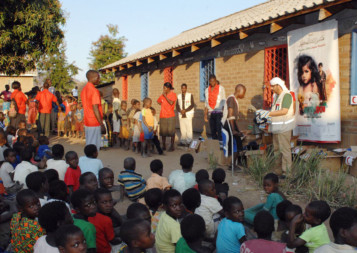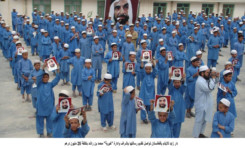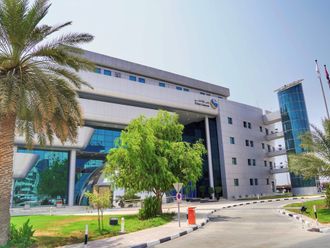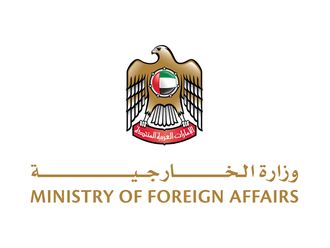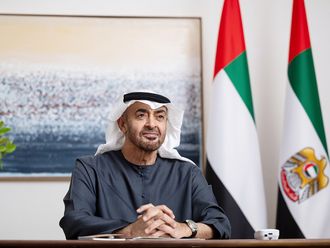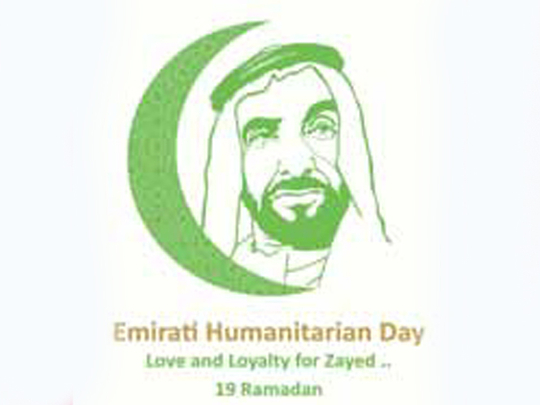
Abu Dhabi: Ramadan 19, which this year corresponds to July 28, has been named “Emirati Humanitarian Work Day,” it was announced recently.
The annual event will be held in memory of Shaikh Zayed Bin Sultan Al Nahyan, the founding father of the UAE. The occasion aims to inculcate the spirit of giving and philanthropy, said Mohammad Al Gergawi, Minister of Cabinet Affairs.
The 19th day of this Ramadan will be the ninth death anniversary of Shaikh Zayed – a world-renowned philanthropist – who passed away on November 2, 2004. In the run-up to the day, several initiatives will be announced and there are already several projects under way.
Gulf News brings you an overview of significant charity foundations in the UAE and the care they have provided for millions of people around the world. Those achievements were embodied by the late Shaikh Zayed.
The best thing could be said about Shaikh Zayed is that he was the humanitarian leader, says His Highness Shaikh Mohammad Bin Rashid Al Maktoum, Vice-President and Prime Minister of the UAE and Ruler of Dubai.
“President His Highness Shaikh Khalifa bin Zayed Al Nahyan, his brothers and all of us follow his footsteps to further develop our country and achieve prosperity for our people,” Shaikh Mohammad was paying tribute to the founding father and first president of the nation on the ninth anniversary of his death.
“I have dealt with a number of world leaders for decades, but did not meet one like the late Shaikh Zayed Bin Sultan Al Nahyan. He was humble and philanthropist,” Shaikh Mohammad said as he remembered the UAE’s founding father’s wisdom and vision, his generosity and his compassion.
History will count Shaikh Zayed among the great nation-builders and humanitarian leaders of all time. In common with such leaders, Shaikh Zayed dared to dream the impossible. What it took to get from dream to reality were the time-tested qualities of self-belief, patience, perseverance, flexibility sense of mission and generosity. The man who boasted these qualities in full measure will remain a role model for his people and the entire world. And his legacy will remain for generations to come.
His achievements in government, first as Ruler’s Representative in Abu Dhabi’s Eastern Region, from 1946-1966, then as Abu Dhabi’s ruler and then, concurrently, as founder and first President of the UAE, from 1971 until his death, meant that, during his lifetime, he was singled out as a great nation-builder.
Shaikh Zayed is remembered for his tolerance, determination and commitment to the building of a better life for his people, as well as his emphasis on the need for loyalty to the nation.
With the beginning of oil production in 1962, Abu Dhabi s economy was revolutionised, poverty being replaced by plenty. A rapid program of development got under way, the building of the basic infrastructure, schools, hospitals, a port, an airport, modern housing for the people and much more. Underlying it all was Sheikh Zayed s profound conviction that: wealth is of no value, unless it is used in the service of the people’.
As soon as he became Ruler, he increased Abu Dhabi s contributions to the Trucial States Development Fund, rapidly becoming its largest donor, and also funded many other development projects in the other emirates.
With a judicious use of the wealth from oil and gas, he supervised the process of creating a modern infrastructure. And, in keeping with another of his well-known beliefs, that the real wealth of the nation is its people , he devoted not just funds, but also his own time and determination to ensuring that education of the country s citizens, men and women alike, was accorded the highest priority.
Externally, his belief in dialogue rather than confrontation won Shaikh Zayed plaudits as a statesman, not just in the region, in bodies such as the Gulf Co-operation Council, whose founding summit was held in Abu Dhabi in 1981, but more broadly throughout the Arab world and beyond.So too was the extraordinary generosity that saw the UAE win recognition internationally as a donor of humanitarian assistance for those affected by natural disasters and conflicts and as a major source of development aid.


